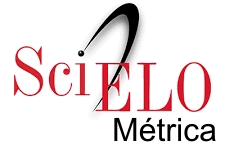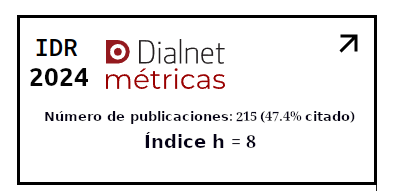The revocation of mandate process as a source of electoral innovation
Keywords:
Recall, electoral innovation, participatory democracyAbstract
Mexican democracy is transitioning from a representative model to a participatory one. Distrust in traditional representative institutions (political parties, governments, government institutions), combined with President López Obrador's political agenda, has caused an increase in citizen interest in participating in elections that amplify their voice in public decisions. One of them is the recall of mandate held on April 10, 2022. However, behind it, there has been an institutional deployment by the National Electoral Institute (INE), which has faced significant budget cuts, as well as the direct affront of government officials in office, with the aim of confronting the electoral administrative authority. With both fronts open, the INE has tended to deploy an innovative technological device to optimize resources and ensure the celebration of the participatory day. The objective of this work is to analyze
and explain the electoral innovation processes carried out during the organization and celebration of the first experience of a recall of mandate in Mexico.
Downloads
References
Altman, D. (2021). Ciudadanía en expansión: Orígenes y funcionamiento de la democracia directa contemporánea. México: Siglo XXI-INE.
Carrera, J. A. (2020). Gobernanza electoral y voto extraterritorial en México 2005-2018. México: IEEG.
Castro, P., & Tejera, H. (2010). Participación y ciudadanía en México. México: Juan Pablos-UAM.
Comisión de Venecia. (2018). Código de Buenas Prácticas en Materia Electoral. Francia: Consejo de Europa.
De Sousa Santos, B. (2020). Democracia y Participación: Proyecto de Democracia Radical. México: Fondo de Cultura Económica.
Harold Bertot, T. (2014). Reflexiones sobre la participación política en la orientación de un proceso de desalienación social. España: Universidad de Córdoba.
Espinoza Valle, V. (2021). El sufragio extraterritorial de las y los mexicanos. México: INE.
Hernández, N. (2021). Los desafíos para la participación ciudadana desde el contexto de la emergencia sanitaria. Espacio I+D, Innovación más Desarrollo, 9(25).
IDEA Internacional. (2008). Direct democracia: The International Handbook. Suecia: IDEA.
INE. (2022). Revocación de mandato. https://www.ine.mx/revocacion-mandato/
Kaufmann, B., Buchi, R. & Braun, N. (2010). Guidebook to direct democracy in Switzerland and beyond. Suiza: Initiative & Referendum Institute Europe.
Latinobarómetro. (de 2000 a 2020). Corporación Latinobarómetro. www.latinobarometro.org
Ley Federal de Revocación de Mandato. (2021). https://www.diputados.gob.mx/LeyesBiblio/pdf/LFRM.pdf
Morning Consult. (2023). Global Leader Approval Rating Tracker. https://pro.morningconsult.com/trackers/global-leader-approval
Oraculus. (2021). Aprobación presidencial. https://oraculus.mx/
PNUD. (2010). Nuestra democracia. México: PNUD-OEA, FCE.
Triana, H. (2014). Reflexiones sobre la participación política en la orientación de un proceso de desalienación socia. En González G.(coord.), Participación política, reflexiones desde el sur: participación política como esencia de la democracia (pp.77-104). Ecuador: TCE.
Vitalle, E. (2014). Democracia y capitalismo. En Salazar, L. (coord.), ¿Democracia o posdemocracia? Problemas de representación política en las democracias contemporáneas (pp. 71-88). México: Fontamara.
Welp, Y., & Massüger, N. (2013). De Suiza a América Latina: desafíos de la democracia directa. Cuadernos del ICGDE, 6









